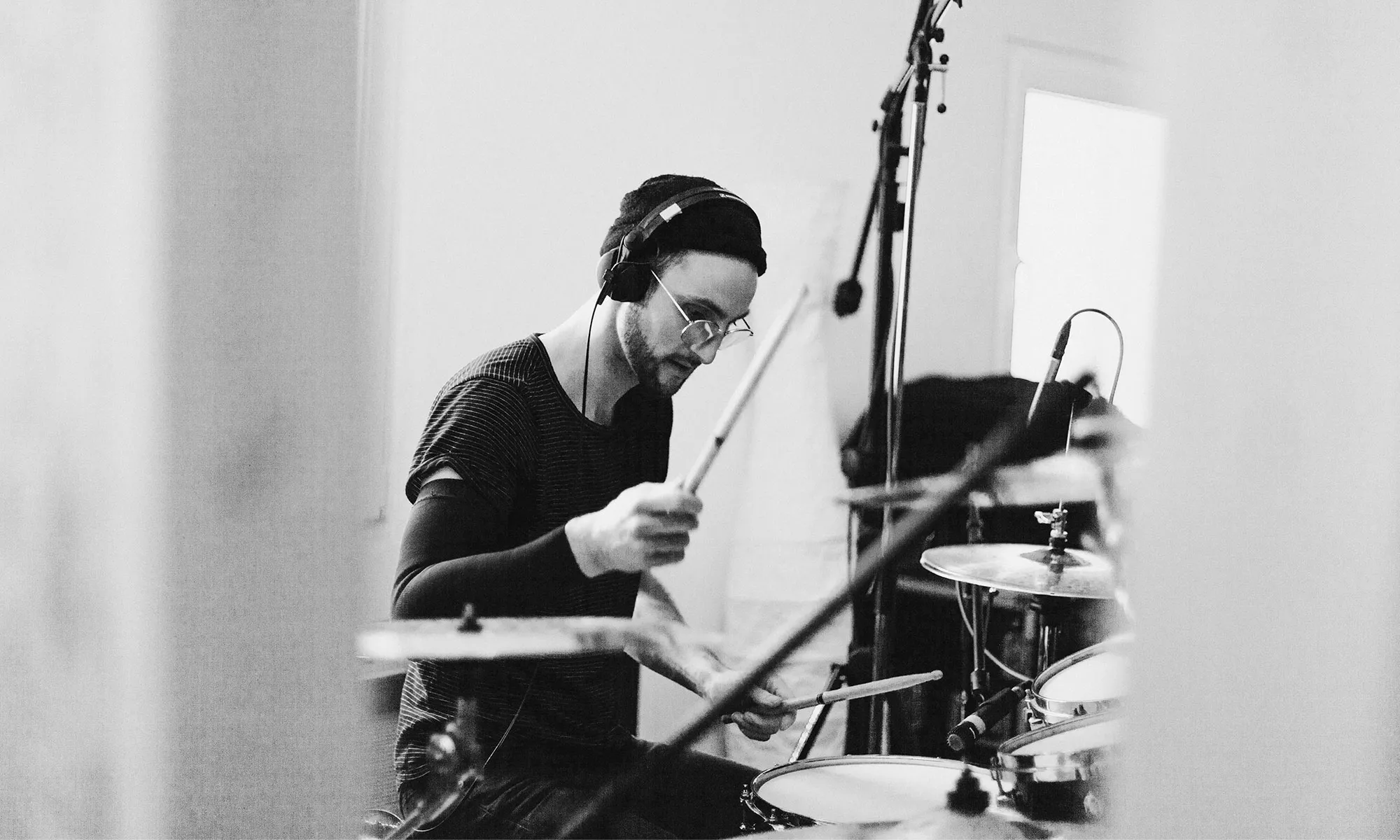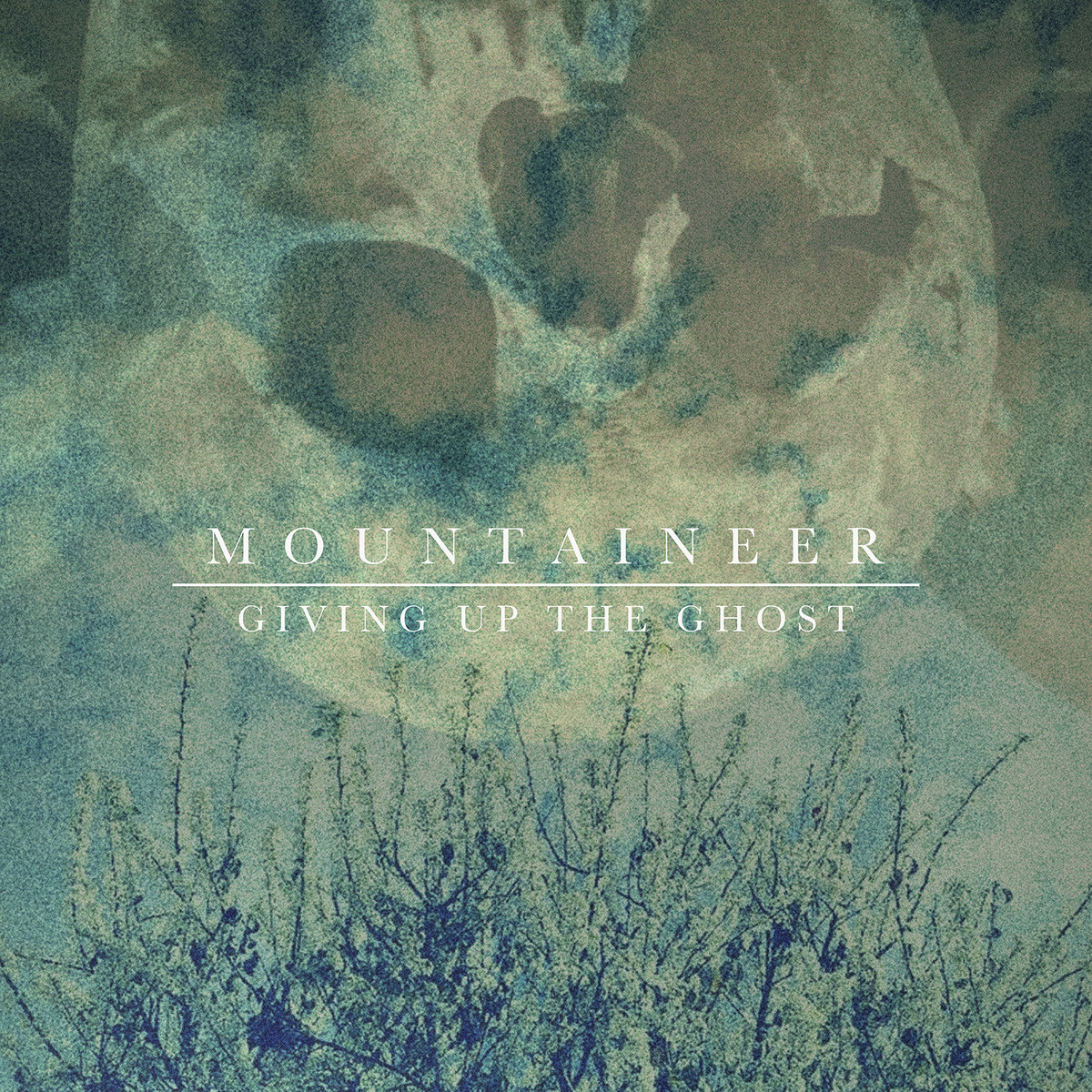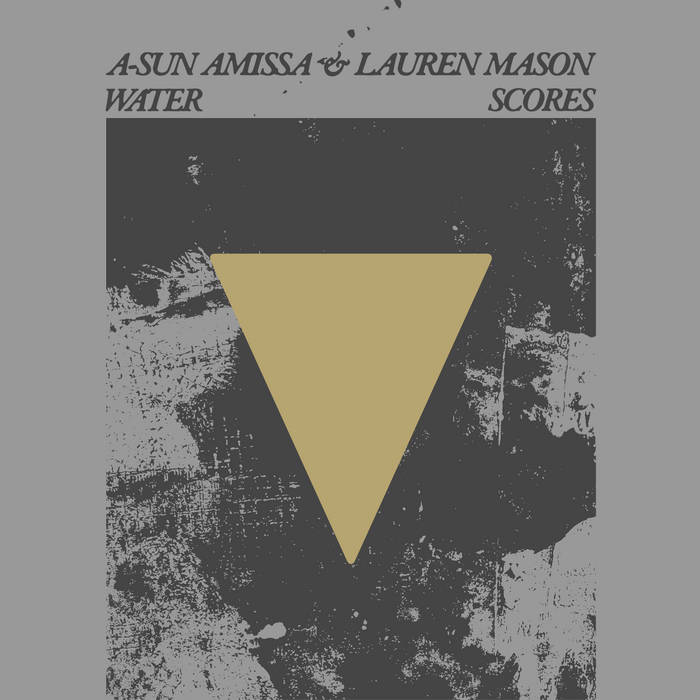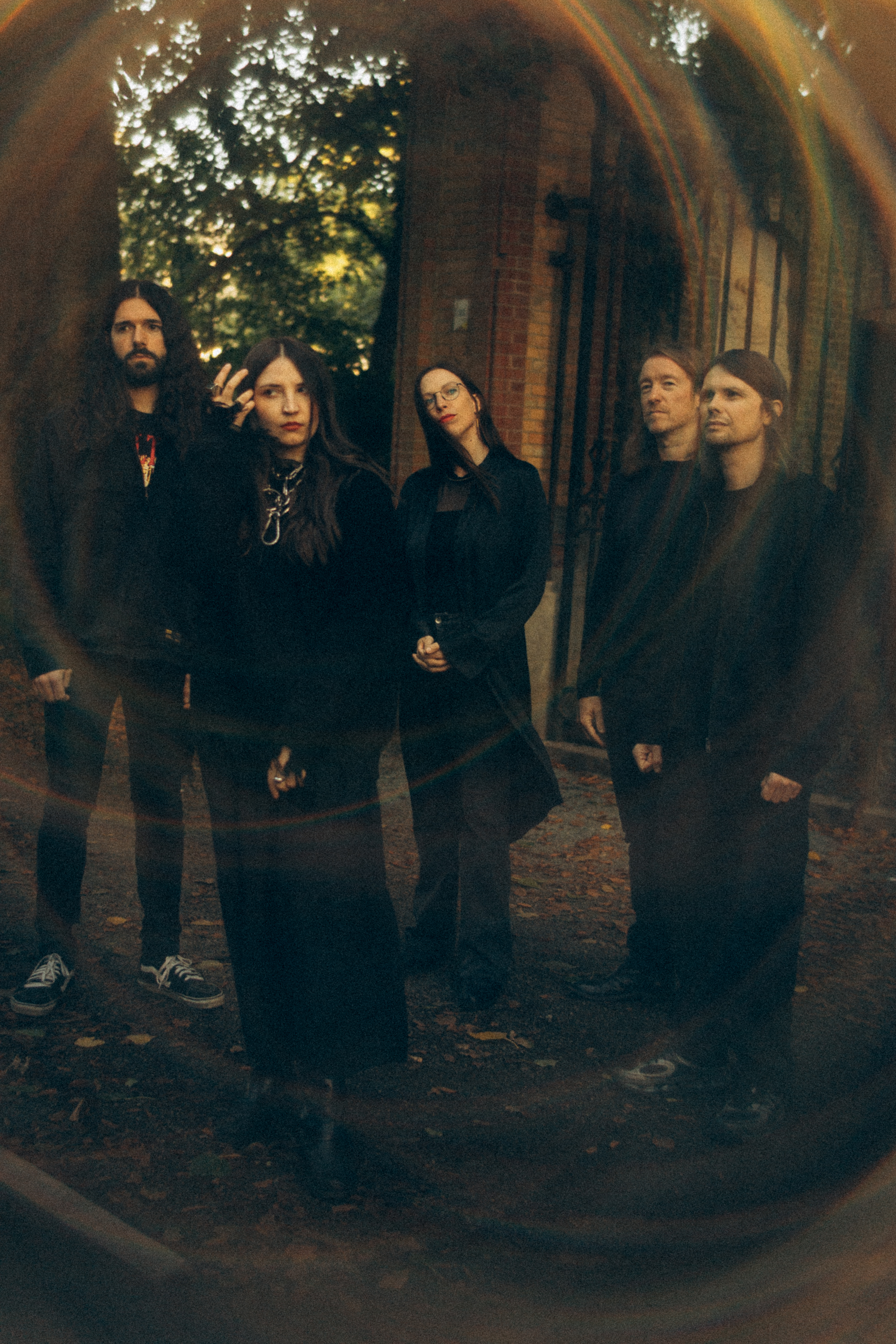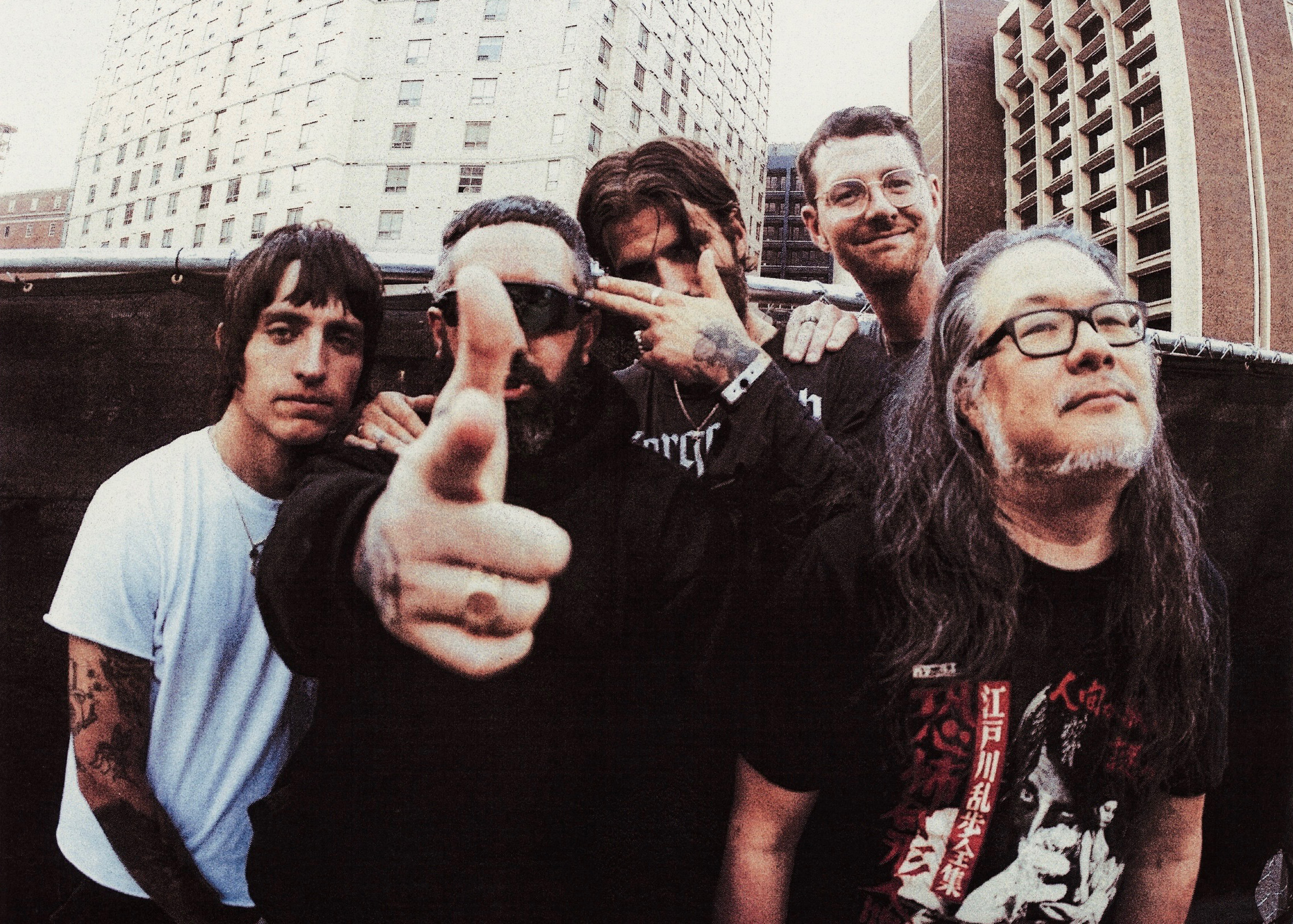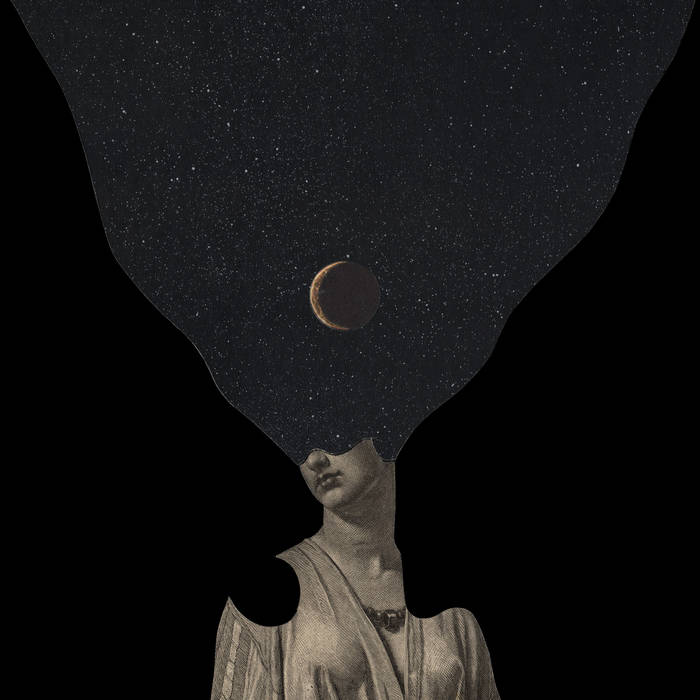Well, the time has come to unleash this upon you, dear Veil of Sound readers. We have been blessed with so many interview opportunities lately that we just had to come up with a second, not so regular interview day for you. For the moment we decided to give you the video-interviews on the weekend and the written ones on Wednesdays. We hope you will enjoy those and of course we had to kickstart the new #InterviewWednesdays with a “bang” - and which instrument gives us more of a bang than the drums? None! And which drummer could be better to start it off than Paul Seidel, the man behind the kits for The Ocean, War From A Harlots Mouth, Nightmarer and several more! Enjoy our interview!
Paul, you have been in touch with music seemingly all your life – which kind of music was the first one that really caught your interest?
I grew up in a very musical household. My father used to play shows, write music at home, and in general just listen to music all the time, so pointing to a specific composer or band isn’t really doing it justice, because the interest in music was already there from the get-go. I guess before becoming a fan of music eventually, I grew up as a fan of my father, watching him perform live with his band and joining him on the piano or whenever he’d cook up another song.
Were the drums the first instrument that you wanted to learn?
I wanted to learn the piano at young age, but my teacher was of the old school and his linear and conservative teaching methods soon made me lose interest, because I’m more of a haptic and acoustic learner. Being hyperactive didn’t help either, so I also tried myself in learning the acoustic guitar afterwards, but that kind of ebbed away when we moved to another city. The drums only really came to play a big role when I was already 15 years old and started a school band with my friends.
What fascinated you about the drums and is it nowadays the same thing, the same reason why you are still a drummer?
I guess the drums and me met at a very fortunate place and time in my life. I felt a growing teenage angst and frustration and that mixed up with an inherent energetic imbalance. I just wanted to get rid of that somehow… the unease of being myself and so the immediate response of hitting the drums made me feel in control of things. Adding to that was an unexpected but obvious understanding of what I was doing, even though I had never played drums before, so that clearly fueled my enthusiasm as well.
I think the juvenile fascination for drums has gradually turned into an overall appreciation for music and instruments.
Can you pinpoint certain drummers that you were trying to emulate?
We started playing cover songs with that school band, so initially we would try our best to play songs of bands like Deftones, Nirvana, Limp Bizkit, and the likes. I remember the first real drum book I got myself was one of Nirvana even, so I was consuming a lot of that vibe. Playing in other bands and with other friends and musicians afterwards definitely helped being able to nourish my musical versatility.
Was it ever everything about ONE certain drummer or was it bits and pieces by different ones?
There’s always waves of inspiration breaking over you when you discover new and exciting music and there are so many great drummers out there that have had an immediate impact on my drumming. It’s hard to pinpoint to one, so I’d say the family of drummers made me play the way I do today.
How would you describe your style of playing the drums?
It really depends on the situation. I’m not a very analytical drummer, so I try to avoid overthinking when it comes to playing. I can make use of my theoretical knowledge when it comes to composing pieces or bringing something to life that demands a more organized approach, but in general I prefer spontaneity and allow myself to improvise in frameworks of rhythmical certainty, so that I can still play comfortably and save, but let the flow of music do its thing when it feels right.
Your father was/is a musician and has been involved in the entertainment sector – was he supportive of your musical aspirations?
Absolutely. My parents were quite laid-back in terms of letting me develop a sense of what I want to do with myself, so from an early age on I remember them to be supportive of my endeavors and allowing me to make decisions (and mistakes) without being judgmental.
How did he react when listening to your early career in WFAHM?
I’m not sure if they understood the subversive context of the youth culture we were moving in, but even though it wasn’t music they would listen to, they would sometimes visit concerts and congratulate me on shows. Even though I couldn’t read their minds I would say they were proud of what I was doing and achieving.
What I love about your contributions and recorded work is that it never really 100% sounds alike – albeit there are a few things that one can recognize you with. How do you go about when putting together your drum contributions?
It’s important to me to find ways of playing in a supportive manner, let’s call it “adaptive drumming”, and really make the song itself shine, rather than drawing too much attention to myself. That has obviously changed quite a bit looking back at older recordings, but nowadays I focus more on the whole, the balance of all instruments involved, and let my ego on stand-by. There’s always room to brag when necessary, but… is it really necessary?
Which of your bands demands the most attention when it comes to songwriting? Can you give any reason why?
That’s difficult to answer. Of course all of the projects I’m involved demand most attention, but the attention can be drawn towards different aspects of songwriting, like drums, vocals, production, etc. The more I get involved in working with others, the better the understanding of what it means to work on something together. It’s all about synergy.
I saw that you are also teaching music? Is that still something you find the time for? And how must I envision such a lesson with teacher Paul?
At the moment I don’t teach private lessons at all, as I simply don’t have the time for it. I used to teach at a music school and at times had around 20-25 students a week, but it’s very difficult to accommodate the specific demands of each individual when you’re constantly on the road touring. Eventually I had to make a decision, but from time to time I teach single lessons here and there. I usually try to understand and hear the person that I have in front of me first, rather than dogmatize them with how music works. Understanding the mind is often more important than understanding notation.
What kind of music did you make before you and some others founded WFAHM? Was it in any way “hardcore”?
I played in a Berlin-based band called “Jigsaw” before joining WFAHM in 2006. That band was an offspring of the Nu Metal age and we clearly were inspired by bands of that time. I also played in a band called “Aret”, which was more in the vein of ska-punk-jazz or something. Years later I re-joined one of the guys’ new band called “Wassbass” as well.
WFAHM was very successful also because of their distinct sound somewhere between avantgarde metal, anti-jazz and death-metal – yet many people described you as metal-core. Is that something that you can or could understand?
I don’t ever think that is relevant to be honest. We were part of a wave of bands that became successful quickly, driven by the growth of interconnection and social media and the ability to make moves independently offside the mainstream infrastructure. I guess we were distinct in a way that most other German bands didn’t sound like anything we’d sound, which helped grow interest internationally, but whatever people called us genre-wise wasn’t indispensable.
How did the end of the band come about? I mean, you had just released an album on Season of Mist and everything seemed to have come into fruition?
The life-cycle of WFAHM was a very tricky one. We had grown to quite some fame very early on in our existence, but then decided to voluntarily fail everyone’s expectations by changing our sound drastically with almost every release. On one hand that made us feel almost sacrosanct and very self-sufficient, but it also made it difficult to find a place amongst the already existing fan-base and bands we were playing live with. I guess eventually all became weary and wanted to try different things in life.
With which of the guys are you still in contact?
All of them. Some more, some less. But we’re all on good terms and just recently sent out a bunch of vinyl represses together.
After that end you were in quite some diverse things – you were in Dioramic, in Fern, in Nightmarer and in The Ocean. However, what I find most interesting is that you contributed to a Casper-album? How did that happen? Is HipHop something that you listen to? If so, what was the last HipHop record that really blew you away?
I met Ben (Casper) back in 2011 when he was joining a ride to a festival we played with “Wassbass”. I think we just immediately clicked and have since then nurtured a very respectful and mutual relationship with each other. I personally just like to allow myself to work in different fields of action. It keeps my brain active and challenged while also developing relationships with people outside of my bubble. Win-win. Plus: I just really enjoy it!
One of the most respected drummers worldwide is Questlove from the Roots – a band rooted in soul, jazz and HipHop – is he one of the modern-era drummers you follow? Which other modern ones do you admire? What do you like about their way of playing?
As mentioned above, there are so many fantastic drummers out there, it’s hard to pick. I love watching the videos of Brody Simpson or Dan Mayo though, because not only have they developed a very signature way of drumming, but they incorporate sound and production in their sound to create their own sonic world.
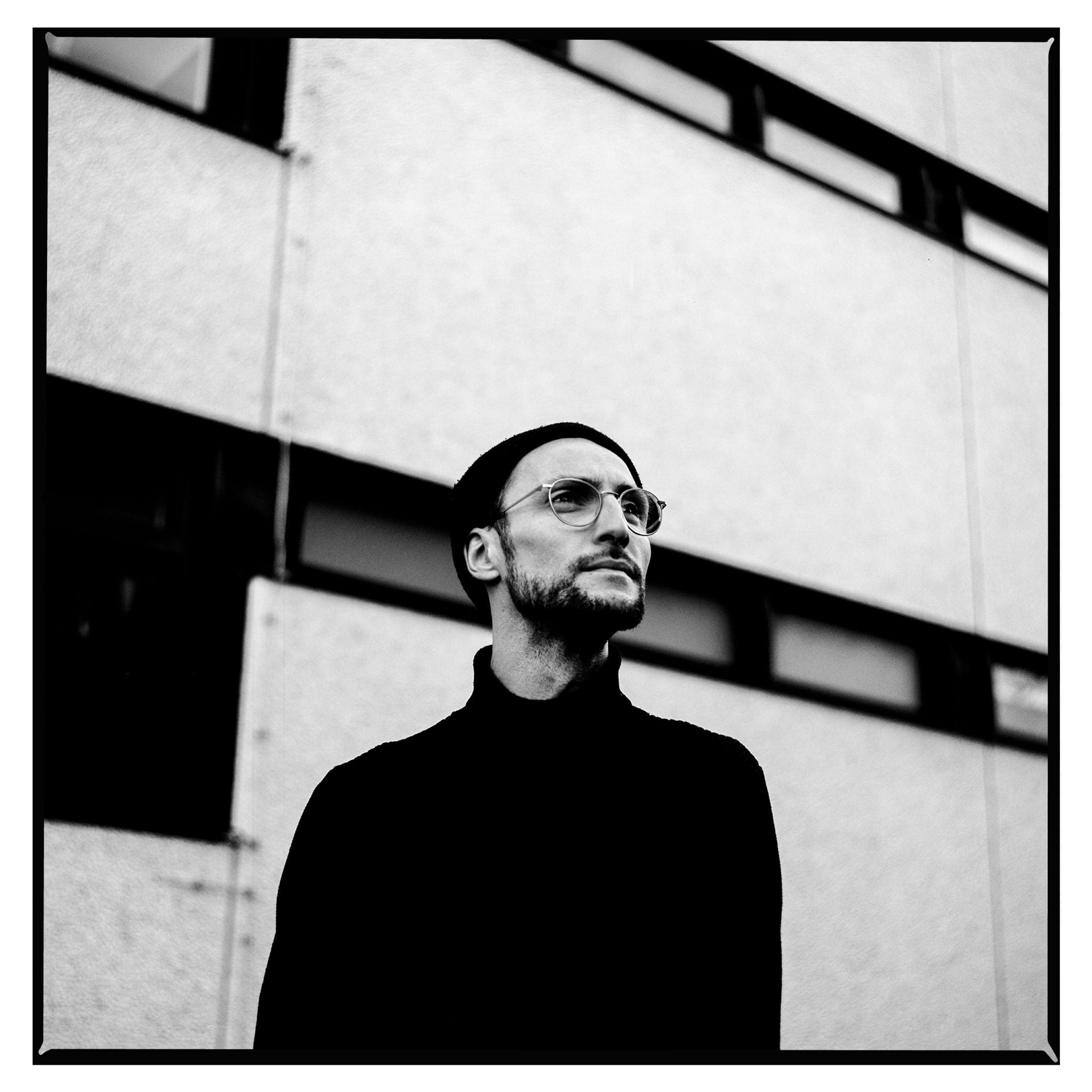
The way people hear the drums are vastly different – what part of the drums comes to your ear first? Or is it never “one” thing?
I don’t think a lot people hear drums differently per se, but of course the more you learn about drums, the more you listen to every different piece of the kit and develop a sense of where all of these parts are placed in a kit. Kick and snare are usually the most common, as they are also most used as the foundation of a groove, so that’s what I hear first, too. The more developed a groove, the more sounds to check out.
When you write your drum parts – do you ever think about having to play the song live?
I do, of course. But it’s not essential for decision-making.
Whenever I see you play, I feel as if you are getting better year by year. And I also feel as if your contributions to the songs become bigger – is that just my impression?
It’s all a learning curve. I’m of course always trying to learn and play differently to when I was 20, but it’s not only a learning curve when it comes to actively playing drums, but more importantly so also an understanding of what it means to be a musician, what it means to interact with human beings and sound and the physical world around us. The more the world contributes to my perception, the more I am able to reflect on it and translate all of these impressions into musical output.
Many drummers love to assemble HUGE kits (not even touching on guys like Portnoy or Palmer, Carey or Bozzio) – you on the other hand have a not overly huge drum kit. Do you believe in “less is more” or have you simply not had the opportunity to need more?
It has a lot to do with how things work in a touring scenario. In most cases there isn’t a lot of space on stage, in a van, in a trailer, so you start adapting your daily routine and your setup to accommodate the necessary. I think growing up in a more hardcore-related tour infrastructure also led to me becoming less intent on enforcing my own will and learning how to make the best out of what I had. But I want to really point out that there is nothing better or worse with a bigger or smaller drum set. People focus way to much on that. What matters most is that the person behind the kit can communicate through whatever their tool is.
Have you ever switched endorsements? If so, why?
I have just recently switched drumheads, since my own preference of sound had changed quite a bit and I wanted to align the different sound spectrum with the way I hear drums for myself nowadays.
In which of your bands can Paul unleash his inner animal and kickstart as many things as he wants to?
I guess that would be Nightmarer, although that inner animal has become a little more tranquil these past couple of years.
Nightmarer – one of the bands you are still active in. ”Total Dissonance Worship” is what Simon once stated as a goal of his. Is that really correct from your perspective – is that what Nightmarer is all about? Or is it more extreme metal meets extreme math-core?
I think that ”Total Dissonance Worship” is more of a plea to ourselves in the context of the band rather than a goal. Everything that is extreme is worth being investigated, if it sparks a feeling of unease and confusion. Dissonance is just another way of playing with frequency and aligning waves that are uncommon in a lot of popular genres, which is what makes them feel so abnormal to most people. I’m a sucker for all things harmony and I don’t think harmony excludes dissonance.
How do you guys write songs? Because if I remember correctly – you don’t even live in the same country, right?
Simon and me used to work together in Florida, where he lived up until just recently to write songs together, but that has significantly improved now that three quarters of the band live in the same vicinity in Oregon. Keith (Merrow) has his own studio there which allows them to have writing sessions together and just record everything that comes to mind.
Dioramic seems to be the nicest of your endeavors – but is it also the one giving you the biggest level of creative freedom?
Dioramic was a very short yet very fun episode of my musical career, but it unfortunately didn’t exist for long enough to have allowed me any creative freedom. It was also the brainchild of the Zaslavski brothers, both of which now live a wonderful life in Los Angeles.
What can you tell us about the status of Fern and Like Lovers respectively? Are these still ongoing projects?
Yes. And both of these projects will see new albums being released this year! I am just now sitting in a train to Nuremberg where I will meet Jan Kerscher (Like Lovers) for a final mixing session. I’m aiming to release the FERN album later this year and hope to be able to share new music very soon.
Now to the two main points people might know you from – The Ocean and Pelagic Records. What do you do at Pelagic HQ? How involved are you in the acquisition of new bands for the label roster?
We have a very open-minded approach when it comes to band applications and demos. We try listening to as many as possible, although not always applicable, and then get together to discuss and negotiate. I’ve had a band here and there that caught my attention, but in general Robin is the guy who makes the final decisions and leads the way.
Who of you guys came up with the amazing idea of trying to get Bruit for the release of their record?
Funnily enough I think both Robin and me had heard of the band independently, but Robin was the one who eventually started conversations with them as they had problems with releasing their fantastic album on vinyl. I completely burst into tears when listening to it for the first time and was immediately elated when Robin told me about it.
Which of the Pelagic releases are you most proud of and why?
That’s difficult to say. I consider all of them to be equally as important. Any album that sticks with people and makes them appreciate the band or the artist for more than just a single listen is something that makes me happy. I think it’s more important to be both humble and confident when it comes to working with other people.
The Ocean – by now it seems as if you and Robin form something like the core of the band. Is that a wrongful perception?
A lot of the work that happens behind the scenes is connected to Pelagic as well as anything that needs to be organized by me or Robin, but it’s all a matter of perspective. You can’t appreciate the bigger picture if you don’t appreciate the tiny fragments of each individual. Some carry more weight than others, but it’s not a competitive environment.
Where are you guys at concerning new music? Did you spend the pandemic writing or merely trying to keep afloat?
We are in the middle of finishing the next album and have more music lined up already, so we’ve been quite busy even during these challenging times. There wasn’t a lack of inspiration, so to say.
By now you have been in The Ocean more than half of the band’s time of existence (if not counting the very early years) – have you by now played all songs ever released on The Ocean album or are there songs that you still haven’t performed?
I haven’t even listened to every The Ocean album either, shame on me. There are so many songs in the back-catalogue that I would probably need another pandemic to have time to learn them, haha…
I oftentimes have the feeling as if one reason you and The Ocean are doing the things you do is to be able to go on tour and see some places one might not visit usually. Just a wrong impression or is that one of the reasons?
It’s incredibly inspiring and educative to go to places you haven’t been before, both musically and culturally. We love exploring different countries and usually don’t waste any opportunity to connect with locals and their way of living. There is so much connection to be felt if you can really let go of prejudice and bias and just enjoy the beauty of nature in a place you’ve never been to.
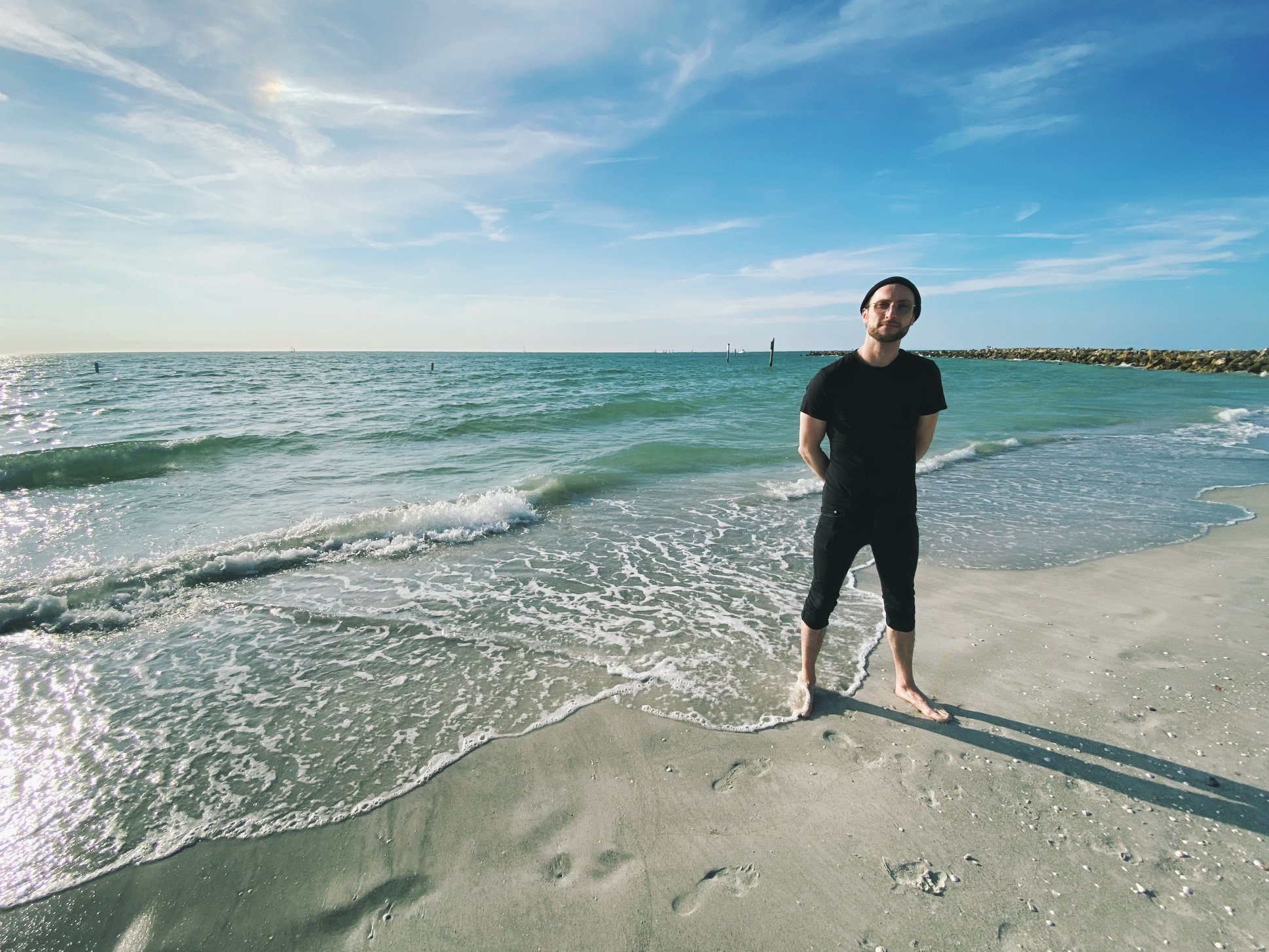
What has been the most inspiring/impressive tour for you?
I think the year 2019 in general was a year of utmost madness and full of peaks and valleys. We went to India, Australia, Russia, Europe, and just played what felt like every power socket of the world while making friends and memories in the most remote places you can imagine. From eating lavash in Armenia to drinking White Russian in the Big Lebowski bar in Vladivostok to headlining in front of thousands in Australia, this year had everything.
What was the most important singular tour experience? Which place has really impacted you?
That is impossible to answer. :)
What are your five favorite The Ocean-tracks to perform? Why?
At the moment it’s ”Triassic”, “Silurian”, “Jurassic”, “Holocene”, “Miocene”. Because they’re FUN!!!
What are your personal top5-songs-that-I-co-wrote-songs? Why?
When it comes to The Ocean it would be ”Oligocene”, “Miocene” and “Holocene”, because these are songs that I wrote and that are fun to perform as well, but I really just enjoy playing songs live in general. I have recently co-produced an EP for German singer Emma Kollmorgen, which will soon be released on Kompakt Records. And there’s a wonderful collaboration with Like Lovers that I can’t tell too much about yet.
If you could have one band of your choice cover one of “your songs” - which band/artist? Which song? Why?
I would love to hear Moderat cover a FERN track. Or Björk re-interpret an Ocean song.
Whenever I check back on your social media I have the feeling of seeing somebody completely at ease with himself and his environment – how do you do that?
I try not to expect too much from life, as any expectation is always both in my own hands as well as the hands of coincidence, which makes things incredibly unpredictable. I believe in humility and pro-activity as much as I believe in silence and noise. I’m as much at ease with life as I allow myself to be.
Is it difficult for you to try and understand all the people around you? Or has that to do with your upbringing?
I find that question to be very suggestive. I’m a highly sensitive person, so I can read a room within seconds, but I sometimes have difficulties communicating in a way that people can understand what I mean, maybe because I tend to unnecessarily complicate my own thoughts or I misinterpret others. In general I get along with people well. :)
And now onto our infamous quickfire round:
Beer or wine? Non-alcoholic beer or red wine.
India or Istanbul? You mean Turkey? India.
Iceland or Norway? Iceland.
Healthy cooking or healthy sports? Both.
Full beanie or fisherman’s beanie? Full fisherman.
The sea or the mountains? Preferably mountains close to the sea.
Traveling by train or by plane? Train.
Books and magazine – printed or e-reader? Books.
Katatonia or Opeth? Katatonia.
Bonham or Moon? I guess both?
Ringo Starr or Phil Collins? I guess both?
The guitar or the piano? Piano.
Robin the label-boss or Robin the band-boss? Robin the friend.
All the best for 2022 and everything it has in store for you.
Thank you for having me! I hope to see you all out there in real life at some point.
(Photo credit for the title picture: Emma Kollmnorgen)

